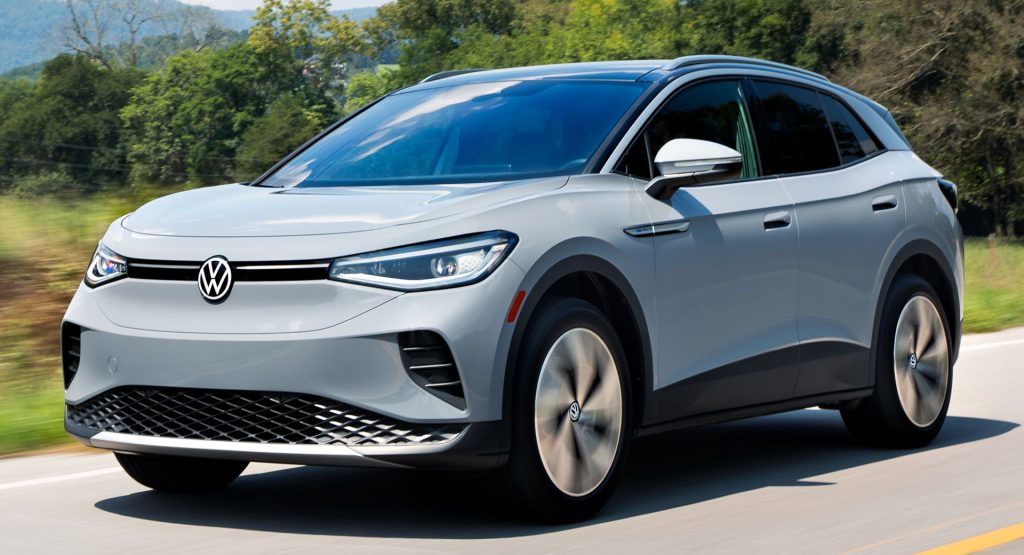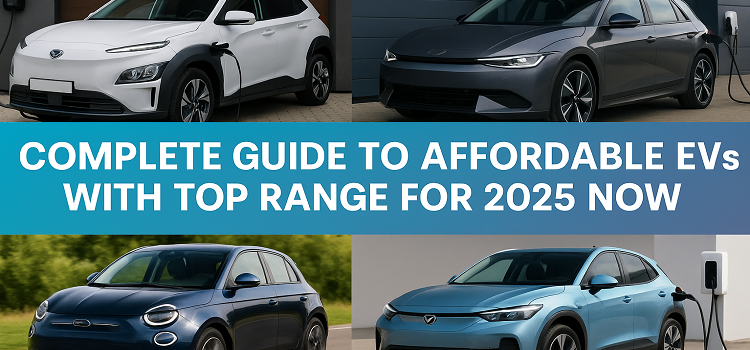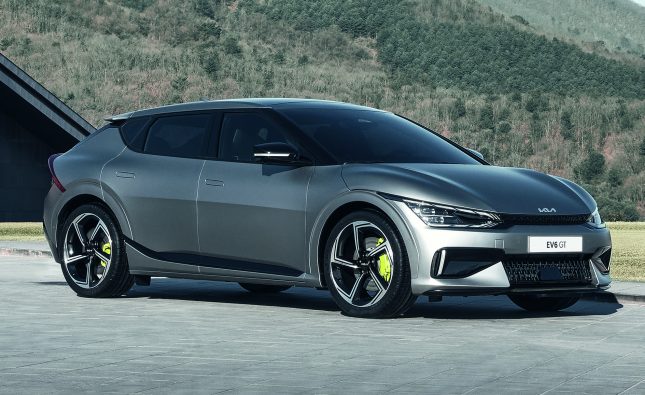
Introduction
Electric vehicles (EVs) are more accessible than ever. In 2025, you don’t need a luxury budget to drive a car that goes over 300 miles on a single charge. Automakers have launched budget-friendly models with long range, fast charging, and modern tech. This guide covers the complete lineup of affordable EVs with top range for 2025, helping you compare prices, performance, and key features. Whether you’re commuting, road-tripping, or just want lower fuel bills, these options deliver. We’ll explain what makes an EV affordable, what range numbers really mean, and which models give you the best value for your dollar. Let’s plug in and explore your next ride.
What Makes an EV “Affordable with Top Range”?
An affordable EV balances sticker price, incentives, and real-world range.
Price after incentives
List prices under $40,000 before tax credits. Federal and state rebates often cut $7,500–$10,000 off the sale price.
Real-world range
EPA estimates matter, but look at independent tests—sites like Edmunds or MotorTrend—to see how many miles you’ll actually get in mixed driving.
Charging ease
Fast-charging capability (100+ kW) ensures long trips are practical. Home charging on 240V adds 25–30 miles per hour.
Ownership costs
Lower maintenance and energy bills save money. Compare estimated charging costs (cents per mile) versus gas.
Top 6 Affordable EVs with Best Range in 2025
Nissan Leaf Plus

The Leaf Plus boosts range over the standard Leaf without a huge price jump.
Key specs
– EPA range: 212 miles
– 0–60 mph: 6.9 seconds
– DCFC: 100 kW
– Starting price: $34,500 before incentives
Why choose it?
Proven reliability, comfortable ride, and Nissan’s extensive dealer network. The e-Pedal one-pedal driving mode makes city traffic easier.
Tip
Use Nissan’s mobile app to schedule charging and precondition the cabin for max range in cold weather.
Chevrolet Bolt EUV

The Bolt EUV stretches GM’s small-car formula into a crossover shape.
Key specs
– EPA range: 255 miles
– 0–60 mph: 6.5 seconds
– DCFC: 55 kW
– Starting price: $33,500 before incentives
Why choose it?
Spacious rear seat, Super Cruise hands-free highway driving on select roads, and a 17.3-inch touchscreen.
Tip
Pair home Level 2 charging with off-peak electricity rates to cut energy costs by up to 30%.
Volkswagen ID.4 Standard Range

The ID.4 offers VW build quality at an attractive price.
Key specs
– EPA range: 242 miles
– 0–60 mph: 7.5 seconds
– DCFC: 125 kW
– Starting price: $38,000 before incentives
Why choose it?
Balcony-style panoramic roof, ID Light guide system, and stored energy “regen on demand” paddles.
Tip
Use VW’s Car-Net app for remote charging control and pre-conditioning on hot days.
Mini Cooper SE (Used)

For city drivers, a lightly used Mini Cooper SE can hit 110 miles at a budget price.
Key specs
– EPA range: 110 miles
– 0–60 mph: 6.9 seconds
– DCFC: 50 kW
– Used price: $20,000–$25,000 with low miles
Why choose it?
Chic styling, agile handling, fun driving personality, and Mini’s premium cabin.
Tip
Ideal for short commutes: supplement with occasional public fast-charge stops for weekend trips.
Comparing Real-World Range vs. EPA
EPA vs. real life
EPA numbers test mixed city/highway at 70°F. Cold weather, hills, high speeds, and A/C use can cut range 20–30%.
Data from testers
Consumer Reports and Edmunds report Kona Electric lost 18% in winter, while Bolt EUV lost 25%. Kia Niro EV fell 20% in cold.
Tips for range management
Precondition battery and cabin while plugged in. Drive at steady speeds and use eco mode. Plan charging stops with apps like PlugShare or A Better Route Planner.
Charging Networks and Home Setup
Home charging
Install a 240V Level 2 charger—costs $500–$1,200 plus installation. It adds 25–30 miles per hour for most EVs.
Public fast charging
Look for 150+ kW stations (Electrify America, EVgo). These add 100 miles in 15–20 minutes for top range EVs.
Tips
Use charging network apps—ChargePoint, Electrify America—to find stations. Have a backup network card or adapter for CHAdeMO or CCS connectors.
Total Cost of Ownership: Fuel vs. Electricity
Energy cost comparison
Average electricity cost: $0.14 per kWh. At 4 miles/kWh, cost is $0.035 per mile. Gas at $3.50 per gallon and 30 mpg is $0.117 per mile.
Maintenance savings
No oil changes, fewer brake jobs due to regen. EVs save about $900 per year in service costs.
Tips
Track charging costs with apps. Consider time-of-use rates to charge at night for as low as $0.07 per kWh.
Table: Affordable EVs Comparison
| Model | EPA Range | 0–60 mph (s) | DC Fast Charge | Starting Price | Real-World Range* |
|---|---|---|---|---|---|
| Nissan Leaf Plus | 212 | 6.9 | 100 kW | $34,500 | ~170 miles |
| Chevrolet Bolt EUV | 255 | 6.5 | 55 kW | $33,500 | ~190 miles |
| Hyundai Kona Electric | 258 | 6.4 | 77 kW | $35,000 | ~210 miles |
| Kia Niro EV | 239 | 6.2 | 77 kW | $36,500 | ~195 miles |
| VW ID.4 Std Range | 242 | 7.5 | 125 kW | $38,000 | ~200 miles |
| Mini Cooper SE (Used) | 110 | 6.9 | 50 kW | $20–$25K used | ~90 miles |
*Estimated winter real-world range.
Conclusion
In 2025, affordable EVs can meet your daily drive and weekend adventures without breaking the bank. Whether you choose the long-range Kona Electric, the practical Bolt EUV, or a used Mini Cooper SE, each model balances range, price, and features. Remember to factor in real-world range, charging ease, and total cost of ownership when making your choice. With federal tax credits and lower charging costs, your next car can be both eco-friendly and wallet-friendly.
Call-to-Action: Ready to switch to an affordable, long-range EV? Visit our comparison tool to get personalized quotes, charging options, and dealer incentives to drive home your perfect electric car in 2025!










